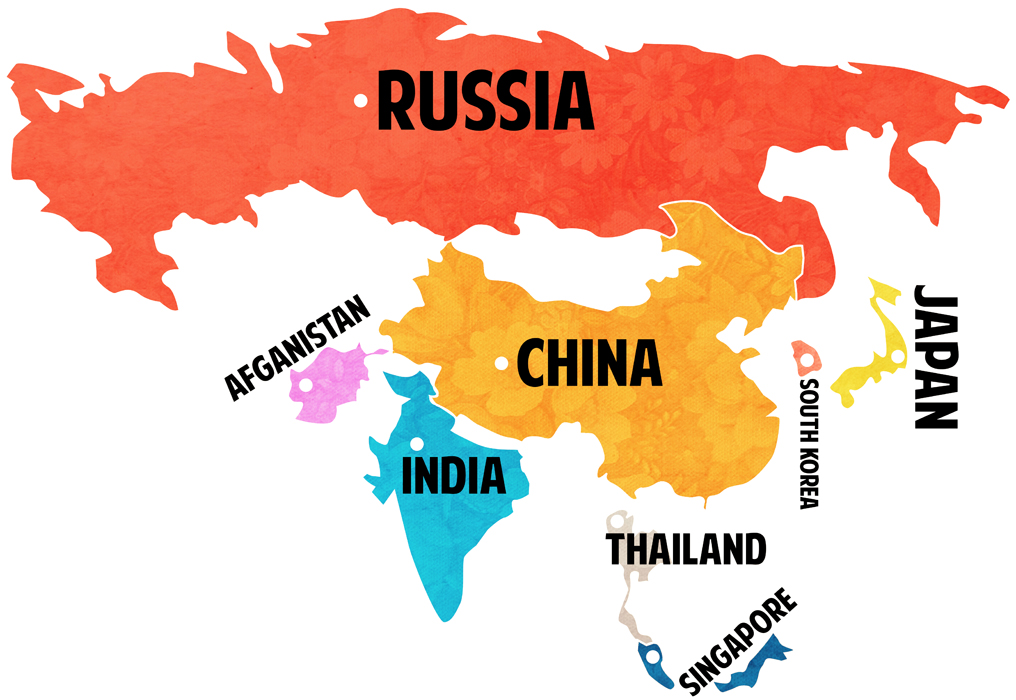The Raghu Dixit Project (India): Combining traditional Indian vocal styles and instrumentation with unconventional musical styles including funky basslines, reggae rhythms and crisp, clean electric guitar, the Project is more than just a name—it’s an “open-house” for musicians and artists to come together and express their craft, regardless of genre, style or nationality. While the majority of his music is inspired by Shishunala Sharif, a saint from Karnataka, India famous for his poetry, Raghupathy Dixit’s lyrics, which are mostly in his native tongue, speak to the masses and deal with everyday experiences and emotions. The self-taught composer and musician believes Indian folk music is not a genre, but a state of mind. “We’re all untrained musicians,” said Dixit on his website, “and singing a song, because it’s innate, is a basic instinct.” The RDP’s debut self-titled album, available to stream online, includes eight full-length tracks that were composed over the past 12 years. The quintet that currently makes up the Project also has a new album in the works.
Kabul Dreams (Afghanistan): Here in the Western world, the music market is oversaturated with rock bands trying to make it big. Afghanistan’s first rock ‘n’ roll band, Kabul Dreams, is only three years old. They have become somewhat of a novelty on a global scale, purely due to the fact that they’re the first ever in their country, but don’t let that stop you from giving them a listen. While their sound ranges from generic to melodic, they do have talent and a whole lot of gusto. As the self-proclaimed voice of Kabul youth, their ciphers deal with post-Taliban messages of peace, unity and love. Groovy. Although the trio lived outside Afghanistan during Taliban rule—singer Sulyman Qardash in neighbouring Uzbekistan, bass guitarist Siddique Ahmed in Pakistan, and drummer Mujtaba Habibi in Iran—they moved back to Afghanistan once the Taliban was removed from power. What’s interesting about these three Afghan boys is that they come from different areas of the country, so they all speak a different native language. Instead of trying to work with that, they decided to sing in English.
Niraj Chag (England via India): This British musician of Indian descent has spent his life in London. His family’s strong ties to their heritage and homeland inspired him to create what BBC Radio 1 host DJ Nihal calls “some of the most beautiful British-Asian music ever created.” Chag composes in multiple languages, including six different languages on his debut album Along the Dusty Road (2006), after which he was awarded the “Best Underground Act” award at the U.K. Asian Music Awards. His next release, The Lost Souls in 2009, drove home this fusion artist’s talent, blending major South Asian styles with Hindi and by combining over 50 vocal layers on one track alone. The songs themselves are relaxed; it’s the type of music you can picture yourself listening to while smoking fragrant Mu‘assel from an ornate hookah in some tucked-away lounge amongst the crowded streets of New Delhi.
BoA (South Korea): K-pop girl groups have steadily grown in popularity, breaking into Western and Japanese music markets on the heels of BoA (Beat of Angel), or Kwon Boa, the reigning “Queen of Korean Pop Music.” BoA’s dance electropop first hooked South Korea in 2000 after she caught agents’ eyes while accompanying her older brother to a talent search. In 2002, she became the first South Korean musician to break Japan since the World War II entertainment trade embargo, opening the doors for girl groups like the Wonder Girls and 2NE1. BoA secured a fan base in the U.S. with the 2009 release of her self-titled English debut album and after spending much of 2010 touring the states and promoting her single “Eat You Up.” The pop starlet is it still maintaining her presence in Japan and South Korea, but is also set to make her Hollywood debut in the dance flick COBU 3D, so brace yourself for a K-pop invasion.
Modern Dog (Thailand): As the victors of the Coke Music Contest in 1992, college mates Modern Dog were instantly thrust into a world of bright lights and flashing cameras to sell over 500,000 copies of their debut album. Their introduction to the Thai music market may seem near effortless, but their sound was over a century in the making. For years, Thailand borrowed music from its neighbours India and China, resting at a crossroads of traditional Greek and Roman trade routes. But Thailand’s popular music format, known as “string,” wasn’t developed without the influence of American R&B, shipped overseas courtesy of American and Australian soldiers serving in Vietnam. Modern Dog broke through the sticky sweet boundaries characteristic of string and brought heavier, American influenced experimental rock featuring English and Thai lyrics. With That Song (2004), produced by Tony Doogan (Mogwai, Belle and Sebastian), and a 2006 U.S. tour, they tried to break into the Western world, but failed to gain much steam. Still hailed as the leader of Thailand’s indie rock music scene, Modern Dog paved the way for alternative rock’s presence in popular Thai music and have sold over two million albums to date.
Hiromi Uehara (Japan): Hiromi Uehara is known as one of the world’s most talented, game-changing musicians for her ability to bring raw, emotional rock to the piano—a relatively peaceful instrument. She began playing the piano at six years old, joined the Czech Philharmonic Orchestra at 14, and has now broken into the more mainstream alternative Western market. Hiromi first worked as a jingle writer in Japan, but travelled to the United States to attend Boston’s Berklee College of Music to study jazz piano. Since the release of her debut album, Another Mind (2003), she has travelled the world, developing a reputation for her inventive, high-energy fusion of classical and hard rocking jazz. With the Hiromi Trio Project, she will bring her latest release, Voice (2011), to this summer’s Fuji Rock Festival and both Montreal’s and Toronto’s jazz festivals.
